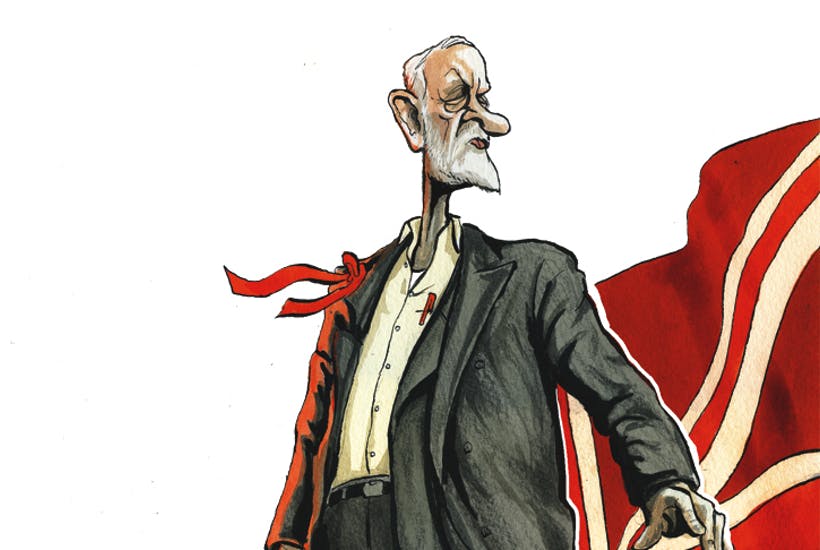If there is an agonistic conflict in Britain today it is between supporters of Leave and Remain. Brexit, as far as 60 per cent of Britons are concerned, is the most important issue facing the country – only 16 per cent think inequality is the most important issue. And views have hardened on Brexit since 2017: it is now clear you should vote Conservative or for the Brexit Party if you want to Leave; and Liberal Democrat, Green or SNP if you want to Remain. Labour’s position on Brexit is however much more obscure. Ironically for a party that has under Corbyn embraced populism, and the updated politics of class conflict, it is neutral on the struggle that matters most to the electorate. Labour’s success in the 2019 election rests on how far it can persuade voters that they are wrong to be obsessed about Brexit. The Labour leader’s supporters certainly believe he is up to the job. But with only 20 per cent of Britons thinking Corbyn is best suited to be Prime Minister, their faith is shared by few others.
Steven Fielding is Professor of Political History at the University of Nottingham and is writing The Labour Party: from Callaghan to Corbyn for Polity Press, to be published in 2021
Steven Fielding
Can Labour be ‘populist’ without a Brexit position?

So Jeremy Corbyn has finally agreed to back Boris Johnson’s demand for a December election. In the end he had little choice but to bow to the inevitable: Johnson already had the votes thanks to the SNP and the Liberal Democrats.
But Corbyn also wanted this election. What had been holding him back was the fears of his own MPs – who were aware of the Conservative’s ten point lead in most opinion polls and their own leader’s dreadful personal ratings. In contrast, Corbyn’s closest advisers and loudest supporters are hopeful the campaign will end in a Corbyn-led government. According to the Sunday Times, the party’s strategist Karie Murphy even says she wants the party to abandon the idea of target seats and instead conduct an ambitious ‘99 per cent strategy’ in which Corbyn will travel across Britain whipping up enthusiasm.
Why this confidence? The answer lies in how Corbynites view the June 2017 general election. ‘If the campaign had lasted longer, we would most probably be in government’ claimed John McDonnell days after a campaign that saw Labour win 40 per cent of the vote. Corbyn supporters were euphoric. Not only had they avoided the cataclysmic defeat predicted by many experts (and most Labour MPs): Corbyn had almost become Prime Minister. And the party did this by largely ignoring Brexit – the issue commentators said would dominate the contest – and emphasising Labour’s promise to reverse austerity. Two years on and Corbyn’s supporters believe history will repeat itself. They imagine their dire pre-election position will again be transformed thanks to Labour’s unprecedented raft of radical policies that promise to completely undo Thatcher’s legacy: this time, Corbyn will end up in Number 10.
Certainly, Corbyn’s achievement in 2017 stood out across Europe. After the 2008 financial crash continental centre-left parties suffered what many believed were fatal reverses, losing support to far-right populists, but also to the far-left, such as Syriza, Podemos and Die Linke. As part of this wider pattern Labour endured defeats in 2010 and 2015. The theorist Chantal Mouffe claims Corbyn reversed this trend by turning Labour into a far-left populist party. That is, she says, he embraced populism by identifying a deep economic fault line in society, one which pitched the people against an exploitative elite and embracing a combative, or as she puts it, ‘agonistic’ struggle against capitalism. This interpretation was meat and drink to Corbynites, and it has been enthusiastically popularised by the likes of Paul Mason and Owen Jones across the Labour left.
Corbyn’s position has however declined disastrously from the heady summer of 2017: Labour now commands the support of about 25 per cent of voters in most polls. Despite this, Corbynites believe that as long as Labour can again take control of the campaign agenda and avoid discussing Brexit it will prevail. As party chair and Corbyn cheerleader-in chief Ian Lavery stated: Labour is ‘not a party of Leave or Remain… the real divide in our country is between the haves and the have-nots’. As far as the likes of Lavery are concerned, Brexit really is just a great diversion from real – class – politics.
Left populism is however not the panacea it once appeared. In Spain Podemos has faltered in the face of a centre-left revival while Greece’s Syriza experiment ended in disappointment. And in Germany it is usually the Greens not Die Linke who are the main challengers to the centre-left SPD. The politics of division, of left-wing ‘agonism’ has its limits, especially in Britain’s two-party system where winning a Commons majority means building a coalition of diverse groups of voters who cannot be easily dragooned behind a simplistic notion of the ‘haves and have-nots’.





Comments